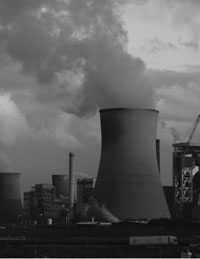
Obama highlights energy policy shift in State of the Union
Energy played a big role in last night’s State of the Union address. The word alone appeared a whopping 23 times throughout the speech, compared to 9 mentions the year before. Energy policy was central to the speech, and it will be central to the Administration’s platform this year.
President Obama signaled his intent to guard his territory over the issue from the other side by not running away from his past support of renewable energy and energy efficiency. However, he also borrowed directly from his Republican opponents when he said “This country needs an all-out, all-of-the-above strategy that develops every available source of American energy- a strategy that’s cleaner, cheaper, and full of new jobs.” Parts of this plan to go after the abundant shale gas reserves within our borders sound like more like the rhetoric of an oil-patch politician than a Democratic President who has been accused of blocking domestic production.
What does this all mean? Politically, it means that Obama intends to stand his ground on energy policy in the upcoming election. Economically, it means that he thinks the shale gas revolution and the prospect of green jobs (even if they haven’t provided the expected jobs boost) could provide a new economic base for the country.
In a bigger sense, it indicates that America’s energy policy is changing.
In Daniel Yergin’s “The Quest”, he said “High energy consumption has always been a prerequisite of political power.” If we take that at face-value, America is quickly losing power to fast-growing countries like China and India. By shifting his Administration’s energy policy towards ‘all of the above’, the President may be trying to arrest that international decline. Unlike Europe, who seems to have doubled-down on clean energy alone, or China and India, who are literally burning dirty coal faster than it can be mined, the U.S. could promote a balanced energy development policy. Such a policy would include a fuel-switching from dirtier fossil fuels, like coal and oil, to cleaner-burning natural gas while also pushing forward with traditional green industries like solar and wind.
An ‘all of the above’ strategy has the political benefit that it sounds catchy and is virtually impossible to argue against. But, it may also have the benefit of being smart. Ultimately, America is blessed with many resources and home to innovative businesses. A policy that exploits those resources sustainably and pushes our companies to develop new technologies could prove to be the best sort of balances and diversified plan.





